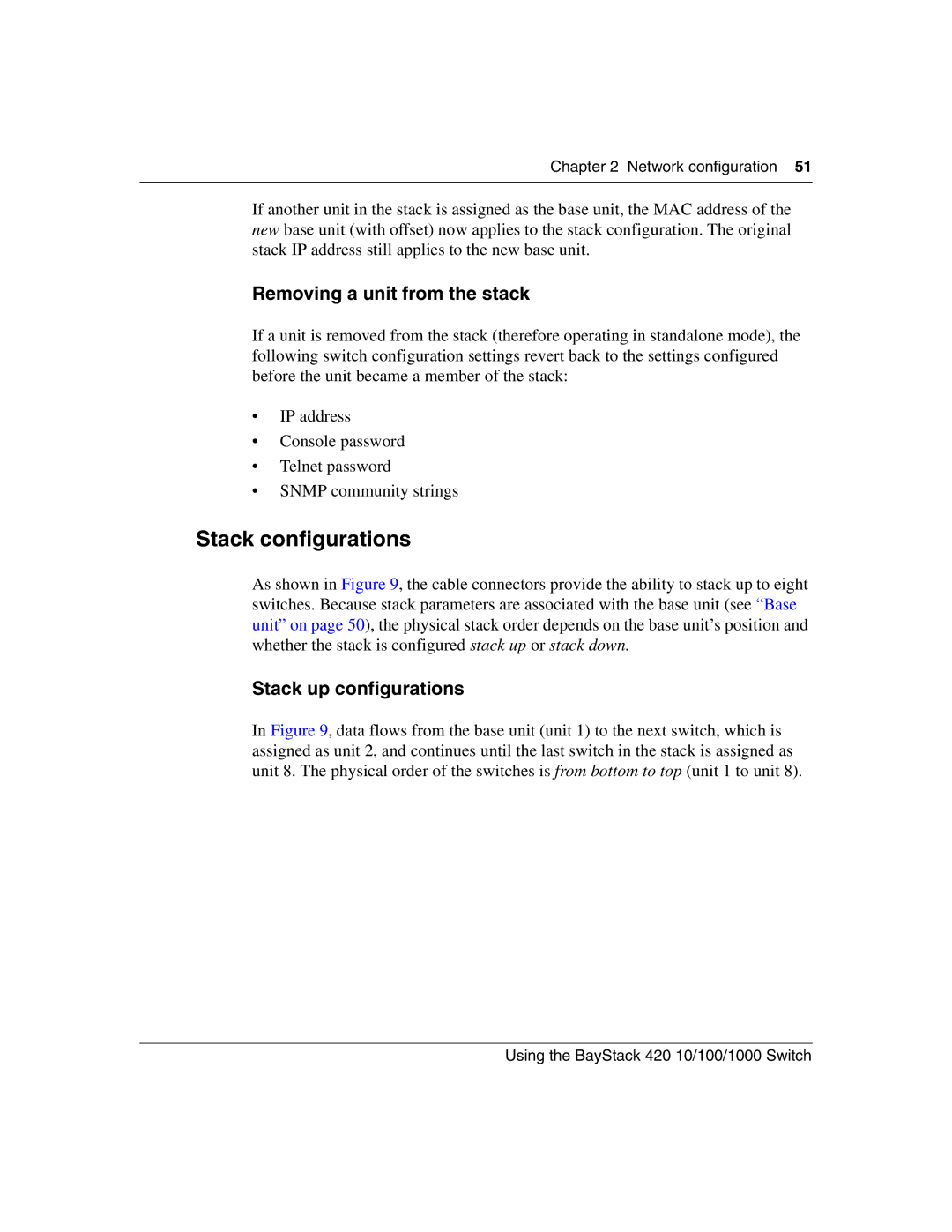
Chapter 2 Network configuration 51
If another unit in the stack is assigned as the base unit, the MAC address of the new base unit (with offset) now applies to the stack configuration. The original stack IP address still applies to the new base unit.
Removing a unit from the stack
If a unit is removed from the stack (therefore operating in standalone mode), the following switch configuration settings revert back to the settings configured before the unit became a member of the stack:
•IP address
•Console password
•Telnet password
•SNMP community strings
Stack configurations
As shown in Figure 9, the cable connectors provide the ability to stack up to eight switches. Because stack parameters are associated with the base unit (see “Base unit” on page 50), the physical stack order depends on the base unit’s position and whether the stack is configured stack up or stack down.
Stack up configurations
In Figure 9, data flows from the base unit (unit 1) to the next switch, which is assigned as unit 2, and continues until the last switch in the stack is assigned as unit 8. The physical order of the switches is from bottom to top (unit 1 to unit 8).
